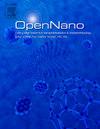Biogenic selenium nanoparticles encapsulated Lactobacillus probiotics targeting colon tumorigenesis: A promising drug delivery system
Q2 Pharmacology, Toxicology and Pharmaceutics
引用次数: 0
Abstract
Selenium nanoparticles are less toxic compared to other selenium forms, and their biogenic production leads to improve bioavailability. However, Lactobacillus probiotics previously exhibited anticancer activity. The current study was evaluated to investigate the therapeutic potential of biogenic selenium nanoparticles that was synthesized via Lactbacillus plantarum (L. plantarum) and Lactbacillus casei (L. casei) against colorectal cancer. The induction of colorectal cancer was carried out via a single dose (5 mg/kg) of 3-methyl-1, 2-dyhydrobenzo(j)aceanthrylene [3-MBA]. After that, animals were treated using 200 µl (from stock concentration 1.0 × 109 CFUs per ml) of selenium nanoparticles derived from L. casei (SeNPs-Ca) or selenium nanoparticles derived from L. plantarum (SeNPs-P) as two separate treated groups for two weeks. Colorectal tumor induction declared a significant increment in total antioxidant capacity. Meanwhile, malondialdehyde level decreased upon 3-MBA intoxication. Molecular analysis of Beclin1 as an autophagy signaling pathway revealed a remarkable reduction upon 3-MBA intoxication. Meanwhile, a significant overexpression was declared in both EGFR and MMP-9 genes post 3-MBA-induced colorectal tumor. Furthermore, a remarkable alteration was recorded in the protein expression of both p53 and TNF-α post 3-MBA injection. Both two treated groups of biogenic selenium nanoparticles declared a significant improvement in the measured parameters, with the superiority of SeNPs-Ca in modulating the altered biomarkers. Histopathological examination of colon tissue confirmed the obtained results. In conclusion, biogenic selenium nanoparticles derived from Lactobacillus probiotics could be a promising candidate as a safe and effective antitumor agent in colorectal tumor therapy and could be a promising drug delivery system targeting tumors.
靶向结肠肿瘤的益生乳杆菌包封生物硒纳米颗粒:一种有前途的药物传递系统
与其他形式的硒相比,纳米硒的毒性更小,其生物源性的产生导致了生物利用度的提高。然而,益生乳杆菌先前显示出抗癌活性。本研究旨在探讨由植物乳杆菌(L. plantarum)和干酪乳杆菌(L. casei)合成的生物源性硒纳米颗粒对结直肠癌的治疗潜力。通过单剂量(5 mg/kg)的3-甲基- 1,2 -二氢苯并(j)乙炔[3-MBA]诱导结直肠癌。之后,分别用200µl(原液浓度1.0 × 109 CFUs / ml)干酪乳杆菌衍生的硒纳米粒子(SeNPs-Ca)或植物乳杆菌衍生的硒纳米粒子(SeNPs-P)作为两个单独的处理组,处理两周。结直肠肿瘤诱导表明总抗氧化能力显著增加。3-MBA中毒后,丙二醛水平下降。Beclin1作为自噬信号通路的分子分析显示,3-MBA中毒后Beclin1显著降低。同时,EGFR和MMP-9基因在3- mba诱导的结直肠癌后均显著过表达。此外,注射3-MBA后,p53和TNF-α的蛋白表达发生了显著变化。两组处理过的生物源硒纳米粒子在测量参数上都有显著的改善,其中SeNPs-Ca在调节改变的生物标志物方面具有优势。结肠组织病理检查证实了上述结果。综上所述,从益生乳杆菌中提取的生物源性硒纳米颗粒有望作为一种安全有效的抗肿瘤药物用于结直肠肿瘤的治疗,并有望成为一种有前景的靶向肿瘤的给药系统。
本文章由计算机程序翻译,如有差异,请以英文原文为准。
求助全文
约1分钟内获得全文
求助全文
来源期刊

OpenNano
Medicine-Pharmacology (medical)
CiteScore
4.10
自引率
0.00%
发文量
63
审稿时长
50 days
期刊介绍:
OpenNano is an internationally peer-reviewed and open access journal publishing high-quality review articles and original research papers on the burgeoning area of nanopharmaceutics and nanosized delivery systems for drugs, genes, and imaging agents. The Journal publishes basic, translational and clinical research as well as methodological papers and aims to bring together chemists, biochemists, cell biologists, material scientists, pharmaceutical scientists, pharmacologists, clinicians and all others working in this exciting and challenging area.
 求助内容:
求助内容: 应助结果提醒方式:
应助结果提醒方式:


